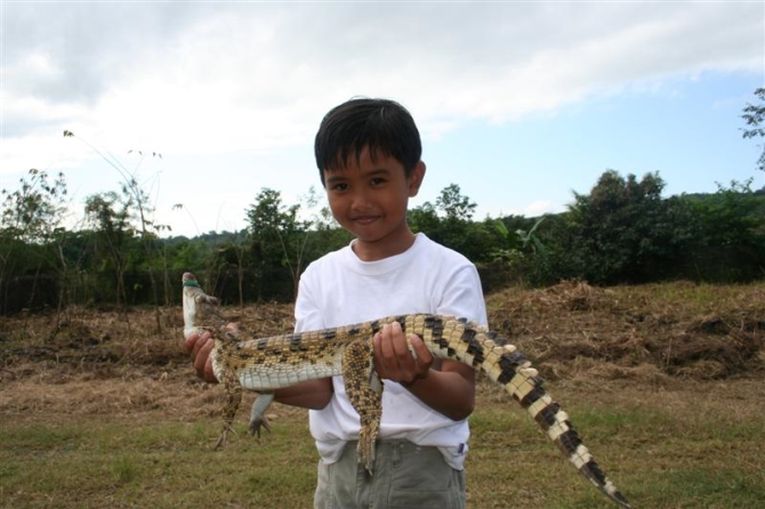The world's rarest and critically endangered crocodile is something we need to consider, as Filipinos fail to discriminate between the giant and dangerous salt-water croc, Crocodylus porosus and this freshwater species. Marites Gatan Baibas has campaigned for years to save this animal, resulting in a Whitley Award last week, to aid the process of informing, education and conserving with the Philippines public.
Its image is that of its big neighbour which is fund throughout Asia and Australia, because of its ocean-going habit. The Crocodyus mindorensis is a shy, friendly creature called the Philippines crocodile,that frequents uninhabited freshwater areas in Luzon, it's habits virtually unknown and reduced in population to only 109 animals. Gatan Balbas Mabuwaya Foundtion is the only organisation that knows much about the situation. The leather and the pet trade are the uses to which crocodiles are put in the Philippines, while the threat of habitat loss is particularly bothersome for juveniles, who have nowhere to hide!
Since 2003 the Foundation has used 9 staff and others to build up the population from a mere 12 individuals. To help, they have persuaded villagers and others t stop killing the crocodiles, with one killing only last year. Gatan's explanation is, "That's the power of involving the local communities in the protection programme - it's very effective because they see the ownership and the pride of being involved in the conservation of the species. They say: 'this is our crocodile and we are very proud of it'." To prove it, 13 were killed in 1998, 5 years before the project began.
Lectures, puppet shows, (punch and Judy comes to mind!) story books and field trips all provide communities with the information that has made them change to a conservationist stance. 4 special sanctuaries have prohibitions, while national laws provide large fines and jail sentences for criminal killing catching the species or any harm caused. Guards also give 24-hour watch and hatchlings are maintained at a rearing station, to lower predation risks and compensate for the lack of suitable habitat.
After the Whitley Award, funds should help to promote the population numbers by 10% pa.










